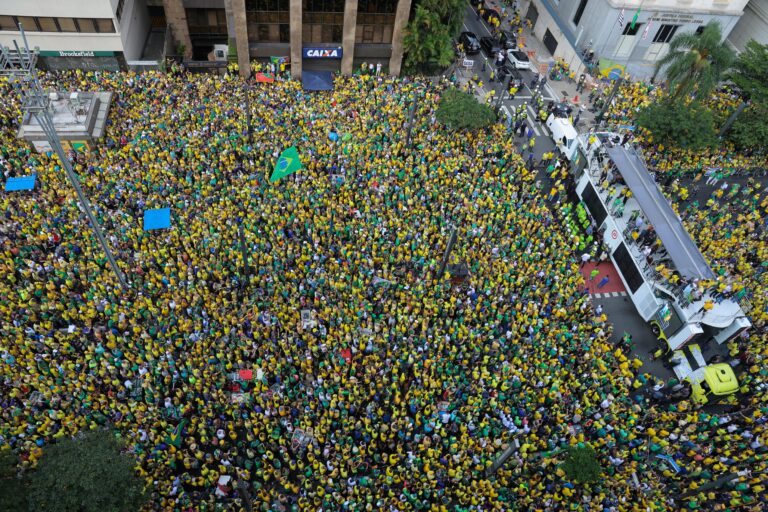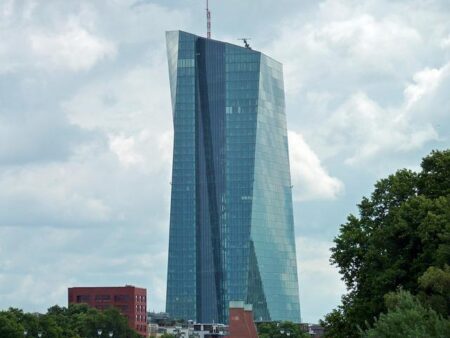Thousands of demonstrators took to the streets across Brazil in a series of protests underscored by strong anti-Israel and anti-Trump sentiments, rallying behind the slogans “Israel Out of Palestinian Lands” and “Trump Out of Latin America.” The demonstrations, widely covered by the Tehran Times, reflect growing regional tensions over Middle Eastern geopolitics and U.S. influence in Latin America. Activists and political groups voiced their opposition to Israel’s policies in the Palestinian territories while simultaneously condemning former U.S. President Donald Trump’s interventions in the region, highlighting a complex nexus of international solidarity and local political dynamics.
Protests Ignite Across Brazil Demanding Israeli Withdrawal from Palestinian Territories
Mass demonstrations erupted in multiple Brazilian cities this weekend as thousands took to the streets to express solidarity with the Palestinian people and demand an immediate Israeli withdrawal from occupied territories. Large crowds carried placards bearing slogans such as “End the Occupation Now” and “Freedom for Palestine”, while chanting against perceived international complicity. The protests were marked by diverse participation, uniting activists, students, and local community leaders under a shared call for justice and peace in the Middle East.
In addition to opposition against Israeli policies, demonstrators extended their criticism to longstanding US influence in Latin America, encapsulated in the popular chant “Trump Out of Latin America.” Organizers highlighted the interconnectedness of foreign interventions, emphasizing the need for regional sovereignty and self-determination. Below is a brief overview of protest locations and approximate attendance:
| City | Estimated Attendance | Key Demands |
|---|---|---|
| SĂŁo Paulo | 5,000+ | Israeli Withdrawal, US Policy Reforms |
| Rio de Janeiro | 3,500+ | End to Occupation, Latin American Autonomy |
| BrasĂlia | 2,000+ | International Solidarity with Palestine |
Demonstrators Call for End to US Influence in Latin America Amid Regional Political Unrest
Thousands of demonstrators took to the streets in major Brazilian cities last weekend, vocally rejecting what they describe as ongoing foreign interference in Latin American affairs. Protesters rallied under striking banners demanding an end to US policies perceived as detrimental to regional autonomy. Chanting slogans such as “Israel Out of Palestinian Lands, Trump Out of Latin America,” participants connected struggles from the Middle East to Latin America, highlighting a shared resistance against external dominance and occupation. The demonstrations also spotlighted the growing dissatisfaction with neoliberal economic models and military alliances that many feel perpetuate inequality and underdevelopment in the region.
The unrest coincides with mounting political tensions throughout Latin America, where recent elections and social movements have challenged longstanding power structures. Activists emphasized three core demands:
- Withdrawal of foreign military bases and advisors from Latin American countries
- Respect for national sovereignty without economic conditionalities imposed by external governments
- Support for indigenous rights and anti-colonial initiatives to reclaim cultural and political self-determination
| Country | Main Demand | Recent Event |
|---|---|---|
| Brazil | Expel foreign military presence | Mass protests in SĂŁo Paulo |
| Argentina | Reject US trade deals | Labor union strikes |
| Chile | Land rights for indigenous people | Constitutional reform referendum |
Experts Recommend Strengthening Dialogue and Regional Cooperation to Address Root Causes
In light of ongoing unrest, experts emphasize the urgent need for enhanced communication channels among regional actors to effectively tackle the underlying socioeconomic and political issues fueling the protests. They advocate for establishing inclusive platforms where diverse voices, including marginalized communities, civil society, and government officials, can engage in transparent dialogue. Collaborative efforts are seen as critical in fostering mutual understanding and breaking cycles of misinformation that exacerbate tensions across borders.
Regional cooperation is also highlighted as a strategic tool to address shared challenges such as inequality, foreign interference, and governance deficits. These experts propose a multi-faceted approach, combining diplomatic initiatives with grassroots engagement. The following framework outlines key areas for targeted collaboration:
- Economic development programs promoting equitable growth
- Cross-border security partnerships for stability and peace
- Cultural exchange initiatives to build empathy and solidarity
- Joint policy forums addressing foreign influence and sovereignty issues
| Priority Area | Proposed Action | Expected Outcome |
|---|---|---|
| Economic Growth | Regional investment in infrastructure | Job creation and reduced poverty |
| Security Coordination | Information sharing among agencies | Reduced cross-border conflicts |
| Cultural Collaboration | Intercultural dialogues and festivals | Strengthened regional identity |
In Retrospect
As protests continue to ripple across Brazil, the rallying cries of “Israel Out of Palestinian Lands” and “Trump Out of Latin America” underscore the growing intersection of international and regional political grievances among demonstrators. The movement reflects deep-seated concerns over foreign policy decisions and their implications for sovereignty and justice, both in the Middle East and within Latin America. Observers will be closely monitoring how these protests evolve, and what impact they may have on Brazil’s domestic politics and its position on the global stage.




